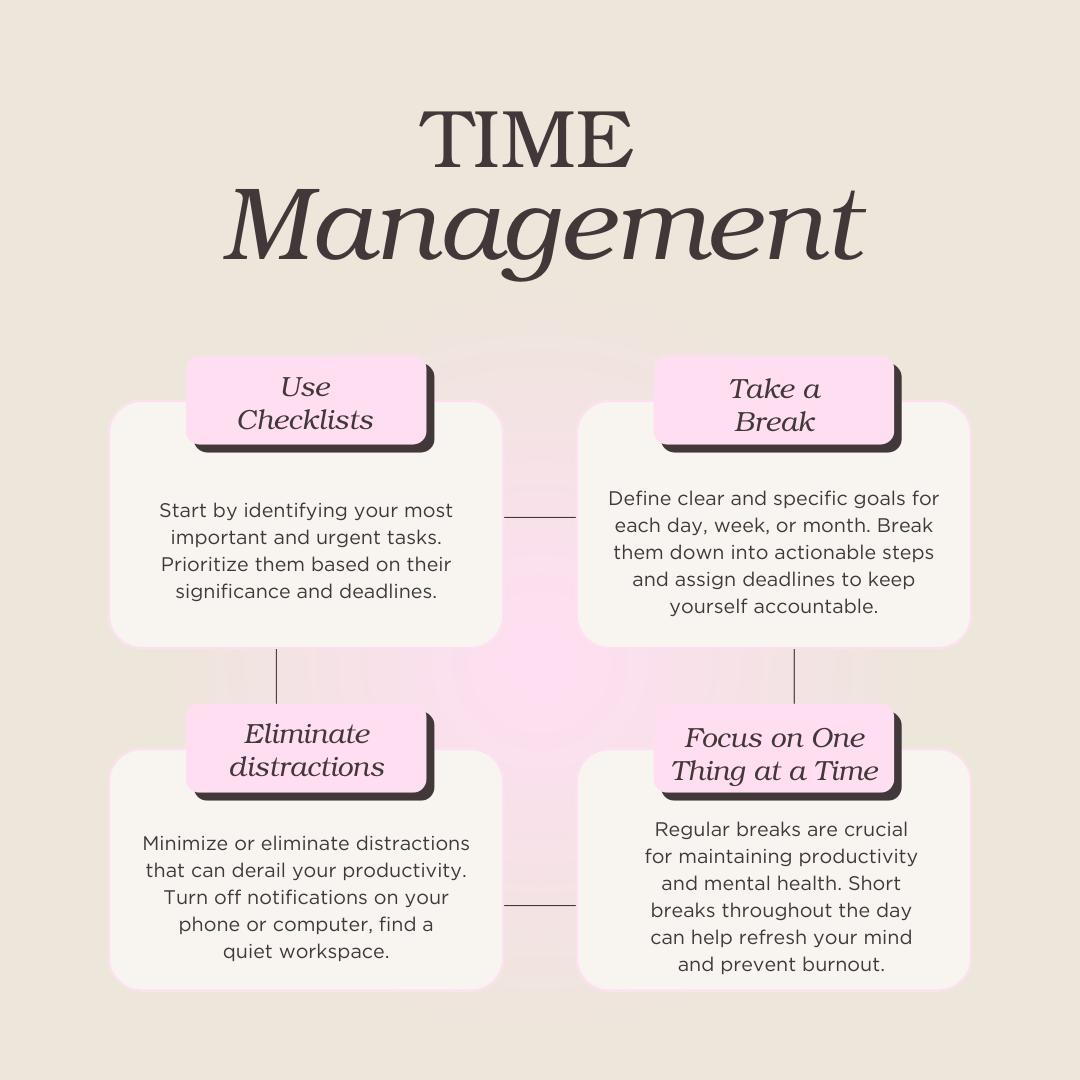
In our fast-paced world, managing time effectively can be a game-changer for both productivity and mental well-being. Here are five practical tips that can help you take control of your schedule and improve your mental health:
1. Use a Checklist
Creating a checklist is a simple yet powerful way to organize your tasks. Start each day by listing what you need to accomplish. Prioritize the tasks based on importance and deadlines. As you complete each task, check it off your list.
Mental Health Benefit: Checking off tasks provides a sense of accomplishment and reduces anxiety. It gives you a clear visual of your progress, which can be highly motivating and satisfying.
2. Eliminate Interruptions
Interruptions can derail your focus and waste valuable time. Identify common sources of interruptions, such as social media, email notifications, etc., and find ways to minimize them. For instance, you can turn off notifications during work hours or set specific times to check emails.
Mental Health Benefit: Reducing interruptions helps maintain a flow state, enhancing productivity and reducing the frustration of constantly starting and stopping tasks. This can lead to a calmer, more focused mind.
3. Focus on One Thing at a Time
Multitasking might seem efficient, but it often leads to mistakes and decreased quality of work. Instead, practice focusing on one task at a time. Complete it before moving on to the next.
Mental Health Benefit: Single-tasking can improve the quality of your work and reduce cognitive overload. This focused approach can also decrease stress, as it allows you to fully engage with and enjoy each task.
4. Take a Break
Regular breaks are crucial for maintaining productivity and mental health. Short breaks throughout the day can help refresh your mind and prevent burnout. Consider techniques like the Pomodoro Technique, which involves working for 25 minutes and then taking a 5-minute break.
Mental Health Benefit: Breaks help reduce stress and prevent burnout by giving your mind a chance to rest and recharge. They can also improve creativity and problem-solving skills by providing a mental reset.
Effectively managing your time doesn't just boost productivity; it also plays a vital role in maintaining good mental health. By using a checklist, setting deadlines, eliminating interruptions, focusing on one task at a time, and taking regular breaks, you create a structured yet flexible framework that can significantly reduce stress and anxiety. This balance is essential for sustaining both high performance and personal well-being.
Remember, time management is a skill that takes practice. Start incorporating these tips into your daily routine, and you’ll likely find that not only does your productivity improve, but your mental health does as well. Happy planning!
